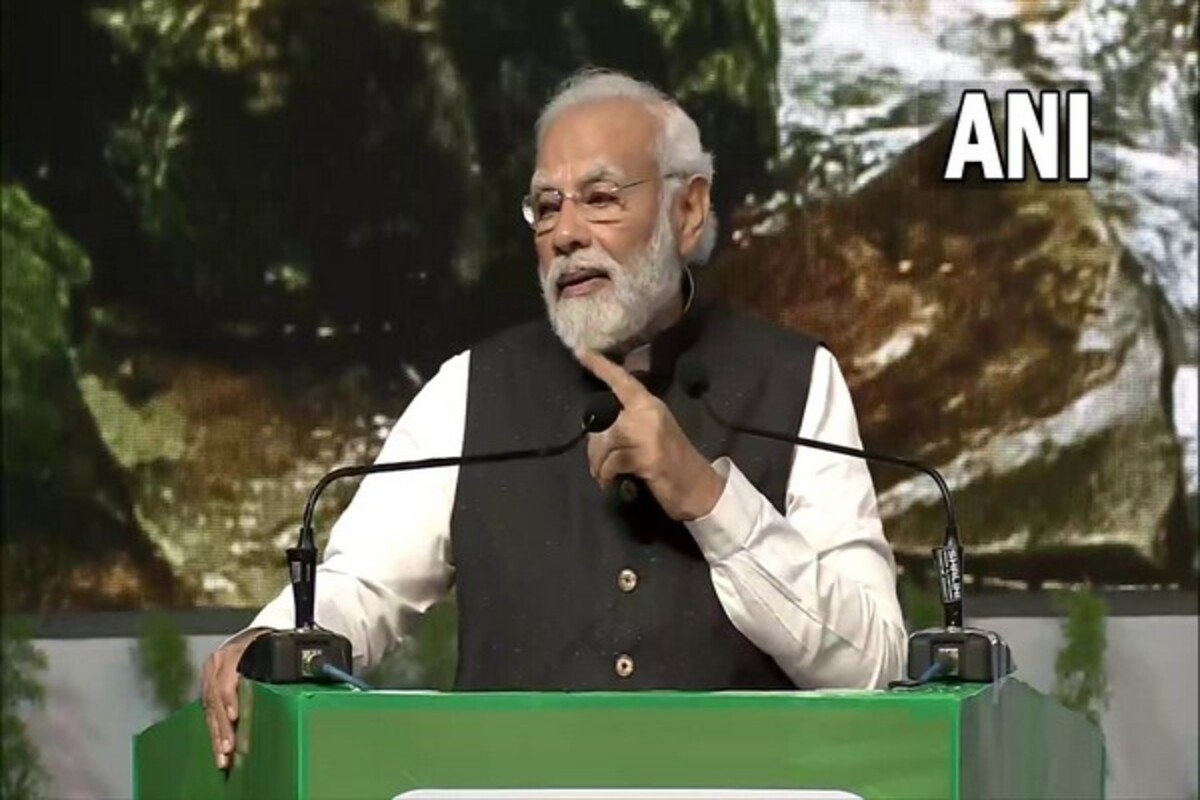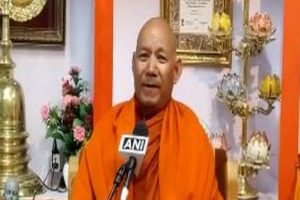Prime Minister Narendra Modi on Sunday called the success of ‘Project Tiger’ not a moment of pride for only India but also the entire world. He said the country has not only saved the tiger population from declining but also provided an ecosystem where tigers can flourish.
Modi was inaugurating a programme, ‘Commemoration of 50 years of Project Tiger’at Mysuru University in Mysuru, Karnataka.
On the occasion, the prime minister launched the International Big Cats Alliance (IBCA). He released the publications – ‘Amrit Kaal Ka Vision For Tiger Conservation’ – a summary report of the 5th cycle of Management Effectiveness Evaluation of Tiger Reserves, declared tiger numbers and released the summary report of All India Tiger Estimation (5th cycle). He also released a commemorative coin on the completion of 50 years of Project Tiger.
Addressing the gathering, the prime minister stressed the significance of the prestigious moment of the growing tiger population in India and paid respects to the tigers by giving a standing ovation.
He said everyone is witness to the landmark event of Project Tiger completing 50 years today and remarked that its success is not only a moment of pride for India but the entire world.
The prime minister expressed happiness that India is home to 75 per cent of the world’s tiger population in the 75th year of Indian independence. It is also a coincidence, the Prime Minister continued, that the tiger reserves in India cover 75,000 square kilometers of land and in the past ten to twelve years, the tiger population in the country has increased by 75 percent.
Reiterating the question in the minds of wildlife enthusiasts around the world about the increasing tiger population in India when compared to other countries where it is either stagnant or in decline, the Prime Minister said the answer is hidden among the traditions and culture of India and its natural urge towards biodiversity and environment.
“India does not believe in the conflict between ecology and economy, and gives equal importance to the coexistence of both,” the Prime Minister remarked.
Recalling the importance of tigers in the history of India, the Prime Minister mentioned that graphical representations of tigers were found on the ten-thousand-year-old rock art in Madhya Pradesh. He also added that the Bharia community from Central India and Worli community from Maharashtra among others worship the tiger whereas many communities in India consider the tiger as a friend and brother. He further added that Maa Durga and Lord Aiyappa ride the tiger.
Noting India’s unique achievements in wildlife conservation, the Prime Minister said, “India is a country where protecting nature is a part of the culture”. He mentioned that India has only 2.4 per cent of the world’s land area but it contributes toward 8 per cent to known global biodiversity. He stated that India is the largest tiger range country in the world, the largest Asiatic elephant range country in the world with nearly thirty thousand elephants, and also the largest single-horn rhino country with a population of nearly three thousand. He further added that India is the only country in the world to have Asiatic lions and its population has increased from around 525 in 2015 to around 675 in 2020. He also touched upon India’s leopard population and stated that it increased by over 60 percent in 4 years. Referring to the work being done to clean up rivers such as the Ganga, the Prime Minister highlighted that some aquatic species that were once considered to be in danger have shown improvement. He credited the people’s participation and a culture of conservation for these achievements.
“It is important for ecosystems to thrive for the wildlife to thrive,” the Prime Minister remarked as he noted the work done in India. He mentioned that the country added 11 wetlands to its list of Ramsar sites taking the total number of Ramsar Sites to 75. He also noted that India added over 2200 square kilometers of forest and tree cover by 2021 when compared to 2019. In the last decade, the Prime Minister said, the number of Community Reserves increased from 43 to over 100 and the number of National Parks and sanctuaries around which Eco-sensitive Zones were notified increased from 9 to 468, that too in a decade.
Highlighting that the cheetah became extinct in India decades ago, the Prime Minister mentioned the first successful trans-continental translocation of a big cat referring to the cheetahs that have been brought to India from Namibia and South Africa. He recalled that 4 beautiful cheetah cubs have been born in Kuno National Park a few days ago. And said that the cheetah has taken birth on the land of India after becoming extinct about 75 years ago. He stressed the importance of international cooperation for the protection and prosperity of biodiversity.
“Wildlife protection is not a one-country issue but a universal one,” the Prime Minister said, stressing the need for an International Alliance. He informed that in the year 2019, the Prime Minister had called for an alliance against poaching and illegal wildlife trade in Asia on Global Tiger Day, and remarked that the International Big Cat Alliance is an extension of this spirit. Noting its benefits, the Prime Minister said it will be easy to mobilise financial and technical resources for the entire ecosystem associated with the big cat while easily implementing the conservation and protection agenda that has emerged from the experiences of various countries including India.
“The focus of the International big cat alliance will be on the conservation of the world’s 7 major big cats including tiger, lion, leopard, snow leopard, puma, jaguar and cheetah,” the Prime Minister remarked and explained that countries that are home to these cats will be a part of this alliance. He further elaborated that the member countries will be able to share their experiences, help their fellow country more quickly, and lay emphasis on research, training, and capacity building. “Together we will save these species from extinction, and create a safe and healthy ecosystem,” Modi remarked.
Concluding the address, the Prime Minister mentioned the Oscar-winning documentary ‘The Elephant Whispers’ and said, “It reflects our legacy of the wonderful relationship between Nature and Creature.”
“The lifestyle of the tribal society also helps a lot in understanding the vision of Mission LiFE i.e. Lifestyle for Environment,” the Prime Minister concluded.











